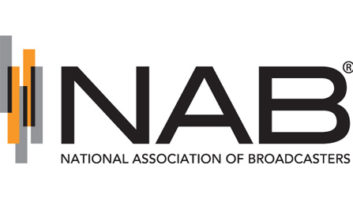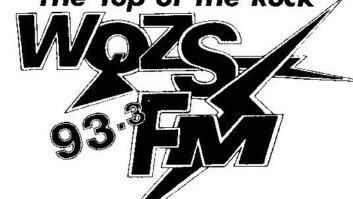Tips From the Former Chief of the FCC Enforcement Bureau
During 2005, the issue of payola received more public attention than at any time since the “pay-for-play” record scandals of the late 1950s. A year that began with controversy over the Department of Education’s undisclosed payments to Armstrong Williams for on-air support of the No Child Left Behind Act ended with New York Attorney General Eliot Spitzer entering into his second “pay-for-play” settlement agreement with a record company – this one with Warner Music Group for $5 million.
The FCC has entered into the fray and announced several investigations. Radio broadcasters should be focused on ensuring that their stations have policies and procedures in place to avoid getting entangled in a payola scandal that could result, at the very least, in monetary penalties.
This article provides background about payola and broadcasters’ sponsorship identification obligations, summarizes recent events and provides suggestions about what radio broadcasters can do to protect themselves.
What’s the law?
The Communications Act generally requires that when money or other valuable consideration has been paid to a broadcast station for the airing of program material, the station must, at the time of the airing, disclose that fact and identify who made the payment or provided the consideration.
To ensure that stations have the necessary information to make these disclosures, the Act also requires not only station employees, but others involved in the production or preparation of broadcast material, to disclose such arrangements up the production and distribution chain. Failure by the payor or recipient to disclose such payments or arrangements is commonly referred to as “payola.” Payola is a federal crime and violations have sometimes led to convictions in federal court.
A broadcast station must make an appropriate sponsorship identification announcement whenever it receives a report of consideration, even if the station itself did not receive the payment. In addition, a broadcaster must exercise “reasonable diligence” to find out about any such payments from those with whom it deals directly.
Above and beyond the requirements of the statute, the FCC has required that, even when no payment or consideration to anyone in the chain is involved, a broadcaster must identify the sponsor of programming involving a “controversial issue of public importance.”
Although cable operators are not covered in the statute, the FCC has applied the same disclosure and diligence requirements to them for programming they originate themselves.
What’s the buzz?
In January of last year, the press began reporting about undisclosed payments to Armstrong Williams for broadcast appearances supporting the No Child Left Behind Act. After an e-mail campaign organized by the advocacy group Free Press and strong statements by FCC Commissioner Jonathan Adelstein, then-FCC Chairman Michael Powell announced an investigation into the Armstrong Williams matter, as well as into allegations reported in the New York Times regarding undisclosed “pay-for-play” at a Buffalo-area radio station. Both those investigations remain pending at the FCC.
Shortly thereafter, press and congressional attention focused on the related use of so-called Video News Releases. These are prepackaged news stories prepared by government agencies or businesses with actors playing reporters and provided to broadcast and cable stations to be aired as if they were real news stories. Not all Video News Releases disclose their source. In April, again prompted in part by a Free Press filing, the FCC responded by issuing a public notice reminding broadcasters and cable operators of their disclosure obligations in this context and threatening enforcement action where appropriate.
In June, Free Press submitted another filing to the FCC – this time calling to the commission’s attention examples of situations where people paid to promote products and corporate brands appear on broadcast stations in the role of on-air experts, without any disclosure. The commission issued a payola fact sheet for consumers, and Adelstein encouraged viewers and listeners to catch and report payola violations, analogous to a “Neighborhood Watch” program.
Then, in July, New York Attorney General Eliot Spitzer announced a $10 million settlement with Sony BMG involving “pay-for-play”-related issues under state law. Adelstein again urged strong FCC enforcement, saying that he believed “this payola scandal may represent the most widespread and flagrant violation of any FCC rules in the history of American broadcasting.”
Chairman Martin promptly announced an FCC investigation and also supported enforcement where warranted: “Broadcasters must comply with these rules. The commission will not tolerate non-compliance. While payola may not be a widespread practice in the broadcasting industry, to the extent it is going on, it must stop. … If the Bureau determines violations of the payola rules have occurred, the commission will take swift action.” Following the $5 million Warner Music Group settlement in November, the commission indicated that it would investigate the underlying facts there as well.
Both the Sony BMG and Warner Music Group settlements include a number of strict behavioral limitations on the record companies’ interactions with radio stations. Attorney General Spitzer is also investigating major radio licensees.
In November, U.S. Senator Russ Feingold, D-Wis., introduced legislation to strengthen the anti-payola statute. The legislation would, among other things, require broadcast licensees and their employees and affiliates who receive any money, services or other consideration, directly or indirectly, from a record company, recording artist, concert promoter, music promoter, or music publisher (or an agent or representative thereof) to disclose that fact to the FCC and to the public each month. The commission could make an exception for nominal transactions and certain paid broadcasting.
The monthly disclosure would also have to include a list of songs and musical recordings aired during the period, indicating the artist, record label and number of times the station aired the song. In addition, all station transactions with the entities listed above would have to be reduced to writing, with copies retained by the licensee.
Finally, in late December, after a Washington Post article on the subject, Commissioner Adelstein called for an investigation regarding television station charity drives co-sponsored by advertisers that also get mentioned in the station’s news coverage of the charity drive.
What can stations do?
Licensees should ensure they have a payola/sponsorship ID compliance plan. The details of the plan should be developed with the licensee’s attorneys. In the pay-for-play context, the compliance plan should include such elements as the following:
* Clear station policies regarding when gifts or other consideration may be accepted by station employees or the station itself and when they must be approved in advance or at least reported to station management. These station policies should be clear that any such permissible gifts or other consideration may never relate to air time (or must be disclosed if they are).
* Clear station policies regarding acceptance of items by station employees or the station itself for contests and giveaways, and appearances or performances at station-sponsored events and when they must be approved in advance or at least reported to station management. These station policies should be clear that any such permissible items, appearances or performances may never relate to air time (or must be disclosed if they are).
* Clear station policies regarding arrangements with independent record promoters, to the extent stations still have such arrangements.
* Compliance training for new employees and periodic compliance training for existing employees (or others involved in making programming decisions) regarding the law and station policies.
* Periodic affidavits from employees and others involved in making programming decisions. Stations may also wish to get information about employees’ outside business interests.
* Appropriate affidavits or certifications of compliance in contracts with record companies, program syndicators, time brokers and other program providers (and their employees).
* Imposition and maintenance of appropriate recordkeeping requirements to permit stations to track compliance.
* Periodic station audits to ensure compliance.
* Disciplinary action against violators.
The key here is don’t play dumb – stations should keep their eyes and ears open and take additional steps to keep any problems from arising and to deal with them if they do arise.
Conclusion
The FCC took its most recent FCC payola/sponsorship ID enforcement action more than five years ago, when it issued two related $4,000 proposed forfeitures, which the licensee promptly paid.
The landscape has changed considerably since then. Payola has received much public attention, both in the pay-for-play context and in other contexts as well. Moreover, indecency enforcement – and all its surrounding political controversy – has pushed broadcast penalties much higher. As the commission considers new potential enforcement action in the payola/sponsorship ID area, we may see significantly higher penalties there as well. Broadcasters would be well advised to ensure that they have up-to-date compliance plans addressing payola and sponsorship identification that are closely followed in practice. Otherwise, they could get whacked, not only with bad publicity but with high monetary penalties as well.












